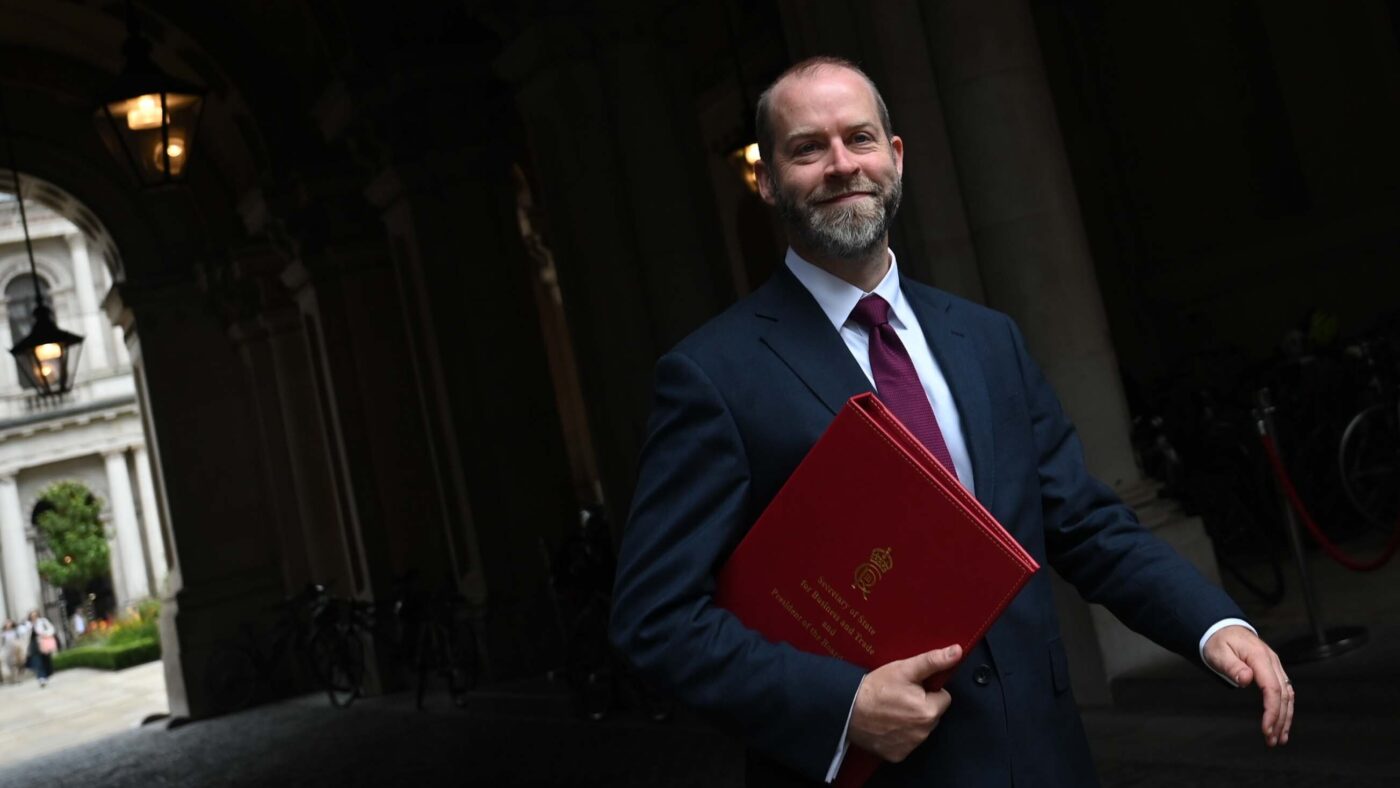A new government means a new set of Secretaries of State and ministers. When it comes to international trade, Jonathan Reynolds will be the fifth person since 2016 to hold the brief. As someone who spent 16 months advising one of his predecessors, here is what I think he should do.
First, he should prioritise finalising the free trade agreement (FTA) negotiations with India. As I’ve written for this site before, a trade deal with India has the potential to be very significant. India is an emerging economic powerhouse with its huge population. Moreover, India levies huge tariffs on goods entering the country including on key British exports such as automobiles and Scotch. Even a partial reduction of these tariffs will mean that UK goods will become much more attractive to Indian consumers which will increase profits, create jobs, and boost wages back in the UK.
Then there is the US. A FTA with the US was lauded as the real prize of Brexit. This has failed to materialise but is worth pursuing again. The reason the negotiations stalled is not down to the politicians or officials who worked on it, but rather that President Biden was just not that interested in doing a deal with anyone. Biden has been an improvement on Donald Trump in just about every way apart from on trade. We don’t know who will be sitting in the Oval Office after the November Election, but we do know that it won’t be Biden. A deal with the US will give tariff free access to the over 300 million Americans and their huge spending power. This again will be a huge boon for British businesses and help to support jobs and wages and drive economic growth.
On the topic of the US, the UK should work with the next President to encourage them to play their full role in the global trading system and stop pursuing the mercantilism which has been a defining feature of the past 8 years. Perhaps the most effective thing that the UK could do is to persuade the US to rejoin the CPTPP by pointing out that this is in America’s interests by countering the threat posed by China.
The Labour government should also work with like-minded countries such as the US to reform the World Trade Organization. The body is in danger of becoming moribund and ignored. It needs real buy-in from the US for it to be taken seriously and so this will mean reforming the appellate system and ensuring that breaches of trade law are punished and repeat offenders such as China face appropriate sanctions.
There is more that the UK and the international community can do to counter China’s growing influence. In addition to encouraging the US to rejoin CPTPP, it should block China from joining and fast track Taiwan’s accession. The ruling Chinese Communist Party is an evil organisation which oppresses its own people, has destroyed democracy in Hong Kong and now has designs on Taiwan and frequently engages in unfair trading practices. It needs to be resisted and should absolutely not be able to increase its influence in Asia by joining CPTPP.
The new government should also reform the Board of Trade. It should be truly independent of government and have real trade experts who will be tasked with thinking up innovative policies. It should also be responsible for identifying barriers to trade which are hindering the efforts of UK firms and driving up costs for consumers. It could function in a similar way to the Office for Budget Responsibility and assess the Government’s policies and the country’s trade performance.
When it comes to future FTAs, the new government should resist the temptation of aiming for quick and shallow deals. The truth is that most modern FTAs do very little for economic growth which is obviously not ideal in and of itself, but also means that the Government’s efforts are derided and the public doesn’t see free trade as important. The reason that they do very little for growth is that they tend to focus on lowering or eliminating tariffs and quotas which, with the exception of agriculture, tend to already be very low under ‘most favoured nation’ terms. What’s more, the UK has real strengths in services trade, and so any future FTA should prioritise boosting this by looking at issues around mobility and the mutual recognition of qualifications.
Finally, on the topic of preferences, the new government needs to prioritise consumers over vested interests. A trade deal with the US and an enhanced deal with Canada would see an increase in food from these countries. This would mean cheaper goods for consumers, but it is exactly this that is the biggest barrier to these deals. The UK currently maintains the unscientific ban on hormone-treated beef and chlorinated chicken and is lobbied by the National Farmers Union and other pressure groups to maintain those bans. The Government should not cave into the demands of these lobby groups who press for higher food prices. Instead, it should be prepared to stand up to them and put consumers first by reversing such self-destructive bans.
International trade is a great thing. It has lifted countless people out of poverty and helps to drive economic growth in the UK. Reynolds should push for more of it by striking FTAs, working with like-minded countries to shake up the WTO and stand up to China, reform the Board of Trade, and put the needs of consumers first.
Click here to subscribe to our daily briefing – the best pieces from CapX and across the web.
CapX depends on the generosity of its readers. If you value what we do, please consider making a donation.


